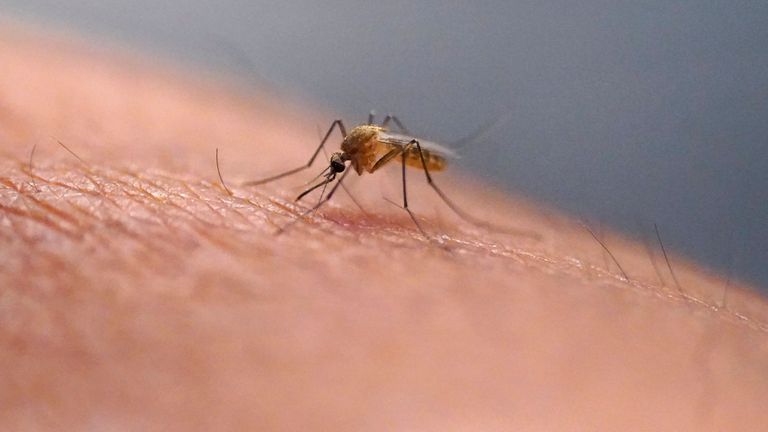More than half of the world’s population could be at risk of catching diseases transmitted by mosquitoes such as malaria and dengue by the end of the century, scientists have warned.
Mosquito-borne outbreaks, driven by global warming, will spread to parts of northern Europe and other regions of the world over the next few decades, the experts said.
In the UK, figures released by the UK Health Security Agency (UKHSA) show imported malaria cases last year topped 2,000 for the first time in over 20 years.
It said there were 2,004 cases of malaria confirmed in England, Wales, and Northern Ireland in 2023 following travel abroad, compared to 1,369 in 2022.
The rise, according to the UKHSA, is linked to the resurgence of malaria in many countries and an increase in overseas travel following pandemic restrictions being removed.
Meanwhile globally, the number of dengue cases reported to the World Health Organisation (WHO) has increased ten-fold in the last two decades, from 500,000 in 2000 to over five million in 2019.
Mosquitoes that carry dengue have invaded 13 European countries since 2000, with local spread of the disease seen in France, Italy, and Spain in 2023.
Rachel Lowe, a professor at the Catalan Institution for Research and Advanced Studies in Spain, said: “Global warming due to climate change means that the disease vectors that carry and spread malaria and dengue can find a home in more regions, with outbreaks occurring in areas where people are likely to be immunologically naive and public health systems unprepared.
“The stark reality is that longer hot seasons will enlarge the seasonal window for the spread of mosquito-borne diseases and favour increasingly frequent outbreaks that are increasingly complex to deal with.”
The researchers said if global warming can be limited to 1C, the population at risk of malaria and dengue could increase by an additional 2.4 billion people by 2100, relative to 1970-1999.
But they predict that if current trajectory of carbon emissions and population growth continues, 4.7 billion could be affected by dengue and malaria by the end of the century.
Prof Lowe added: “We must anticipate outbreaks and move to intervene early to prevent diseases from happening in the first place.”
The researchers are now developing ways to predict when and where epidemics might occur using disease surveillance and climate change data.
The findings were presented at the ESCMID Global Congress in Barcelona, Spain.



























